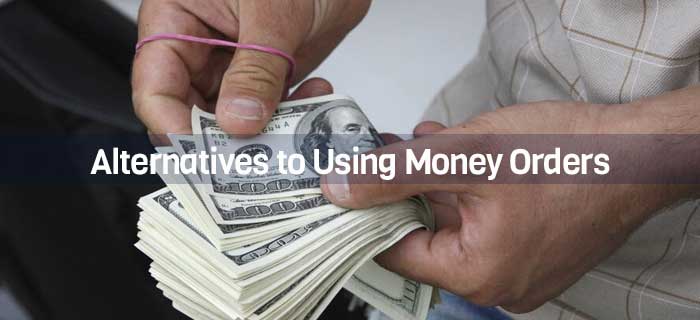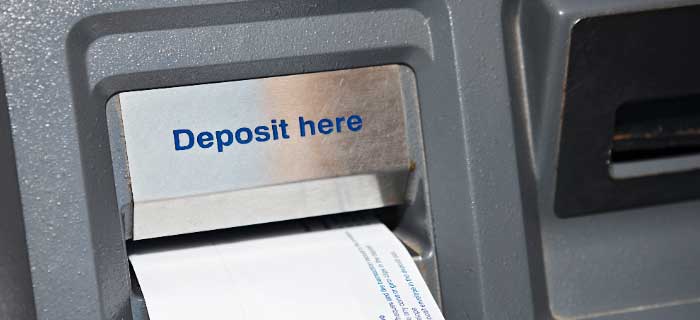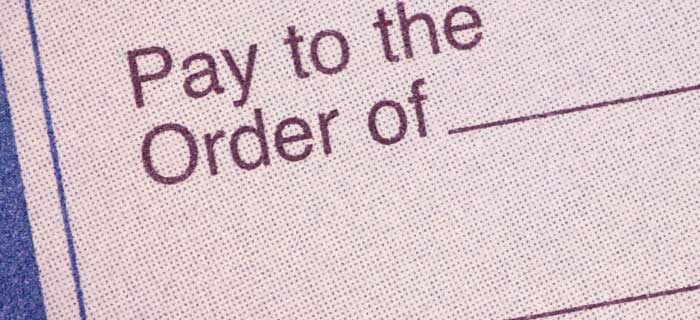Money orders are safe alternatives for cash and can be purchased without fee, or just in a small portion of the fee at certain locations. While it has its benefits, it does hold a fair share of downsides as well so you may not always be inclined to use a money order. We will be walking you through the alternatives to using money orders i.e., the cashier’s check and how they work!
- Alternatives to using a money order, that is the cashier’s check, is the perfect option when you cannot use the credit or debit card.
- You can use the cashier’s check if your purchase is of at least $1000 or more than that.
- In most of the large banks of the United States, money orders typically cost you around $5 to $1000.
…and Much More!
Alternatives to Using Money Orders – Cashier’s Checks
Money orders can be used by people without having to have access to a standard checking account. These are mostly preferred in case of small debt payments and also for small service fees.
- Some of the favorable conditions where you should prefer to use the money order is if your purchase is $1000 or less.
Another scenario where money order can be used is when you don’t have access to a financial platform. You can purchase the money orders at credit unions and various banks as well and then you can use them to convert into cash. It is sort of a one-off purchase and can be used as a secure payment method.
While money order suits a few precise conditions, it does have an apt alternative i.e., the cashier’s check. It goes without saying that cashier’s check is the one that is directly drawn from the bank’s bank and not your own.
Cashier’s checks cost you a bit more in return facilitating sending large amounts of money. These are signed by the teller or cashier and the bank where you get the check from guarantees the cashier’s check payment. Alternatives to using a money order, that is the cashier’s check, is the perfect option when you cannot use the credit or debit card.
When Should You Use a Cashier’s Check?
Cashier’s check as we already know is the one where you draw the funds from the bank. Just like money orders, a cashier’s check should also be employed during the below-mentioned circumstances.
- To use the cashier’s check, you need to have a bank account and official access to any of the financial institutions.
- You can use the cashier’s check if your purchase is of at least $1000 or more than that.
- Money orders usually have a certain limit on the amount. On the other hand, cashier’s check does not have any set limit.
- Cashier’s check is ideal for large purchases when you cannot carry a huge amount of cash all along.
- Another situation can be when you can easily afford to spend about $10 on the check and not less than that.
- If you are looking for more secure protection, a cashier’s check is always better than money orders.
- For instance, your seller refuses to accept a personal check, you can always opt for the cashier’s check.
Cashier’s Check vs Money Order
To give you a quick rundown of the difference between a cashier’s check and money order, we have listed distinctive features to decide which one fits perfectly to your needs.
Fees
As opposed to the cashier’s check, money orders are less expensive. In most of the large banks of the US, money orders typically cost you around $5 to $1000. Talking of the largest US retail stores i.e., Walmart, you can get it up to 88 cents for $1000.
To avail of the money order, all you need to have is a government-issued photo ID for identity verification. Another suitable place where you can get it is the US Postal Service for an amount ranging between $1.25 to $1.76.
Whereas, the cashier’s checks are expensive but let you send more money in comparison to the money orders. The fees for cashier’s check depends on the financial institutions. The availability and pricing should be confirmed before buying one.
Ease of Purchase
Typically, you can get both from various banks and credit unions. But, cashier’s check is more rigid to the availability terms as they are predominantly available in financial institutions. To get either of these, you’ll have to physically pay a visit to the target store as they aren’t available online.
Money orders have many conveniences. They can be bought at the customer-service counter at various transfer outlets, retail stores, and post offices and they do not take long to deposit. Another way you can purchase your cashier’s check or money order is by requesting your recipient to allow you to send money online.
Safety
In general, both are safer than carrying a huge amount of cash all along. But cashier’s checks are yet acclaimed to be safer than the money order.
One of the main distinctive features that make a cashier’s check safer than a money order is that the recipient’s name. It is mentioned by the financial institutions themselves in former. The bank fills out the “pay to” line themselves instead of asking the purchaser to avoid any fraud.
This makes the check more encrypted and credible in comparison to the money order where the purchaser fills out the recipient’s name himself.
To minimize the risk of any fraud or false financial activities, it would be best if you purchased the cashier’s checks from the banks. With extensive guarding and security, it becomes trustworthy for all the concerned parties involved.
Other Alternatives To Using Money Orders
While cashier’s check remains one of the most common alternatives to money orders, we have various other options that you can look into at your convenience.
Electronic Payments
Money orders can be processed online too supported that your recipient has an electronic payment system. The bills and other expenses are typically handled in hard copies, but you can also pay them using the respective website of the company.
This works in a way where you will have to use your debit card, credit card, along with the account and routing number. The electronic payments, however, come with a certain amount of fee depending upon the payment method you are using.
Some online rent payment systems charge a minute fee for using a credit card. Typically, the fee for electronic payments is around $2.50 or even less. Money order fees can range up to $6 which makes electronic payments yet cheaper.
In comparison to the money order, electronic payments save you more time and money since you are doing it via the online system. Moreover, electronic payments are free if you use the account and routing number to make a payment.
Money Transfers
Money transfers work in two possible ways. These include sending funds to the bank or payment account of another person or sending them to agent locations for cash pickup. In comparison to the money orders, these are fee-free and offer a high sending limit.
While many people have to make use of the traditional banks, money transfers being the alternative to money orders replaces the need of even having to go to banks. With the additional facility, you can transfer money either online or physically in person as per your preference.
Various online options that you can make use of for making payments include Venmo, Cash App, PayPal, Xoom, and Zelle. In addition to these, you are also facilitated with the physical payment transfer options through Walmart, Western Union, and MoneyGram.
Personal Checks
Another alternative that we will talk about here is personal checks. These are mostly issued from banks or credit unions and are signed by the account holders themselves. As they are issued from licensed financial institutes, you’ll need to have a bank account for this.
It is the simplest, inexpensive, and most secure option of all. Personal checks do not require you to pay any fees to write or even send the check. All you need to have is a checkbook from the respective financial institute and get started.
Prepaid Cards
Prepaid cards are reloadable debit cards on which you can load a certain amount of money. You can reload your prepaid cards at the ATMs, online, or even at the participating stores. Prepaid cards deem fit for the money order’s alternative due to a couple of reasons.
Unlike money orders, which you are bound to purchase every single time, prepaid cards do not require much expense from you. Prepaid cards are secure and anonymous and can be used to pay a family or friend a certain amount of money.
Prepaid cards typically charge around $4 to $10 for the reloads. We do know that these are comparatively higher than the money orders, but several locations offer free reloads for prepaid cards.
Some of the prepaid cards such as Serve FREE Reloads and American Express’ Bluebird cards can be reloaded all free of cost. This can be done at retail stores such as Walmart and CVS. Therefore, you can always opt for prepaid cards as an alternative to money orders.
Cash
Another simplest and most convenient alternative is cash here. Alleviate all the hassle of having to have a bank account and make use of cash to pay your recipient. While it offers massive ease, it does hold an equal share of risks and frauds.
Cash would only be the best option if you are physically making a certain purchase. Then you can pay the seller in cash all by yourself. Sending it via the mail can lead to potential risks of losing the money.
The Bottom Line
The money order is known to be a guaranteed payment. You can buy it at several locations such as banks, post offices, and retail stores. However, if you are considering alternatives to using money orders, cashier’s checks are more likely to be available in licensed financial institutions. This is done to eliminate any chances of money fraud.
- While a cashier’s check is better for large purchases, money orders are preferred for smaller ones.
You can cash your money orders at the credit unions and local banks. These can be deposited into a bank account. Indeed, each of the said entities is helpful in terms of secure payment options as a replacement for cash. Just enter the relevant information on whatever you wish to obtain and voila.
You might be interested in reading: How To Correct a Mistake on Money Order?
Frequently Asked Questions
Can I pay something online with a money order?
Yes, few retailers do allow you to pay with money orders for online purchases.
What are the downsides of money order?
The process can get a bit extensive when you are trying to know whether the money order is cashed or not. It requires extensive documentation and can take longer than usual.
Does eBay allow money orders?
Unfortunately, eBay does not allow money orders. Generally, PayPal, debit cards, Google Pay, Apple Pay, and credit cards are accepted at eBay.
What happens if I don’t use a money order?
As long as you don’t cash your money order, you can always refund it or get a replacement.
What is the maximum amount for a money order?
The maximum amount for a money order is up to $1000.

Jamie Johnson is very enthusiastic Kansas City – based freelance writer, and her core expertise are finance and insurance. She has been endorsed on several personal finance, insurance & business website to share her thoughts. Her publications can be found on famous sites like Bankrate, The Balance, Business Insider, Chamber of Commerce and many others.
From many years, she served more than 10,000 hours of research and writing to more than 2000 articles related to personal finance, credit building, mortgages, and personal and student loans.




